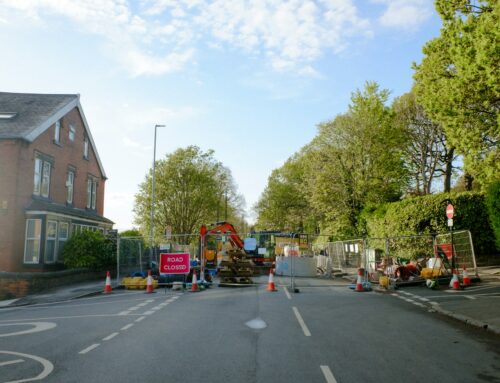With the still-young Labour Government having been in power for more than a month at the time of typing, transport consultants and their clients are continuing to see signs of how Prime Minister Sir Keir Starmer’s administration will approach this critically important sector.
However, not all the news impacting on transport planning and infrastructure so far has been positive. Indeed, Chancellor of the Exchequer Rachel Reeves made a dispiriting announcement to the House of Commons on 29th July, stating that the new Government had discovered a large gap in the UK’s finances.
What did the Chancellor say, and what are the implications for UK transport?
Ms Reeves said that an unfunded governmental overspend amounting to £22 billion had been passed on to the new Labour ministry from the previous Rishi Sunak-led Conservative Government.
She went on to say that to help tackle this deficit and relieve the associated pressure on public finances, various measures and cuts would be necessary. These have included the cancellation of certain transport infrastructure projects.
It had been intended under the Conservative administration that works would be carried out on the A303 and the A27, but these projects will no longer go ahead. Also getting the axe is the Restoring Your Railway scheme, a move that will apparently save £85 million.
Declaring that “if we cannot afford it, we cannot do it”, the Chancellor said there was a total of £1 billion worth of transport projects – committed to for next year – that was “unfunded”. She did, however, add that Transport Secretary Louise Haigh would undertake a review of those commitments.
Greater “certainty” needed on transport projects, UK charity says
Chief Executive at the Chartered Institution of Highways and Transportation (CIHT), Sue Percy CBE, described Ms Reeves’ Parliamentary announcement as “disappointing”, but “not surprising given the continuing pressure on public finances.”
She went on to warn, however, that “one of the consequences of cutting transport infrastructure projects is the negative impact this has on the sector, economy, and society.
“It is really important,” Ms Percy continued, “that the Government works with the sector to ensure we have a sustainable pipeline of transport projects to give firms and [CIHT] members more certainty and end this stop-start approach to infrastructure planning and delivery.”
Our transport consultants can assist your efforts to achieve success with your projects
While the current times may seem relatively straitened ones for the UK transport sector, this situation further underscores how important it is to ensure the careful and informed planning and delivery of the transport infrastructure projects that still proceed.
To benefit from our transport consultants’ expertise and guidance, please contact your nearest Transport Planning Associates (TPA) office today. When you do, we can provide transport planning advice based on your specific circumstances and requirements.





